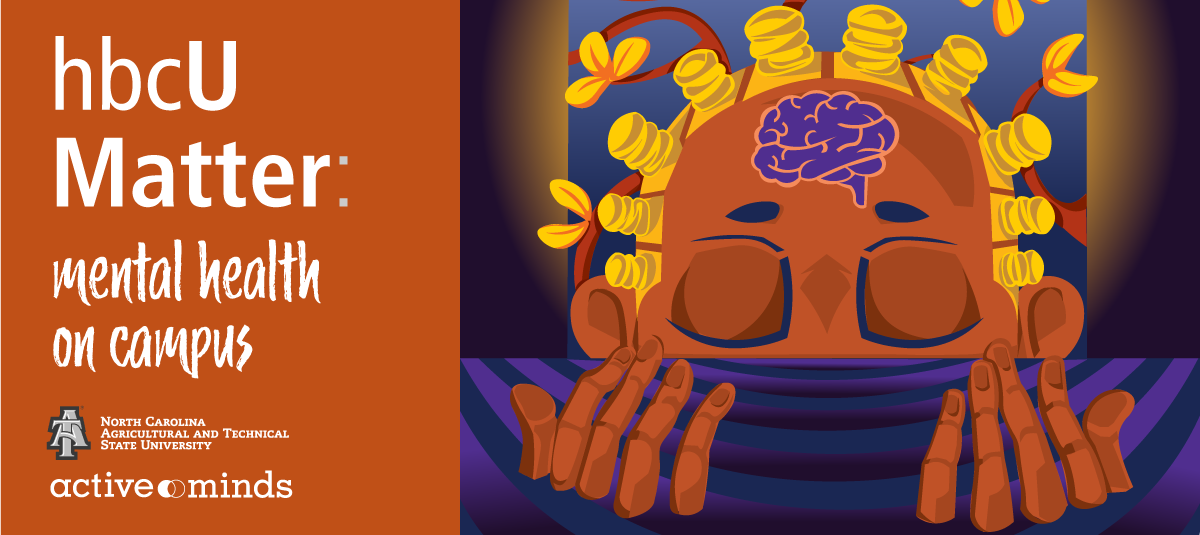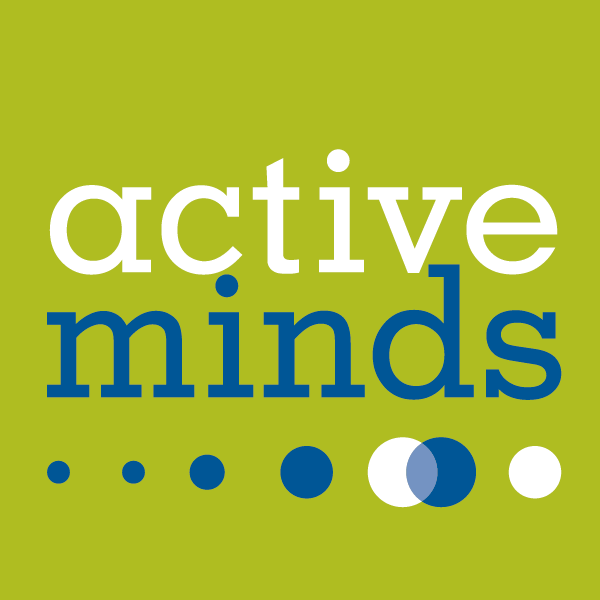The “hbcU Matter: Mental Health on Campus” webinar was coordinated by North Carolina Agricultural and Technical State University (NCATSU) and Active Minds to highlight the importance of mental health and well-being on HBCU campuses. With the disproportionate effects of the pandemic and continued experiences of racism the Black community has faced over the past few years, it’s critical to have conversations about mental health, especially because it often goes unaddressed. Black, Indigenous, and people of color (BIPOC) young adults experience higher rates of negative physical and mental health outcomes due to social, economic, environmental, and other systemic inequities. This can be compounded by the lack of a strong support system. The webinar, led by social worker and NCATSU Active Minds chapter advisor, Andrew Watkins, touched on these topics, and more.
Here were our top five takeaways:
There are culturally-relevant ways to process and share one’s story, and recognizing those as valid is important.
The presenters shared that hip-hop music is one unique way that mental health stories are told in Black communities. Narrative therapy uses the art of storytelling as a tool to connect with people’s experiences. Rapping, similar to narrative therapy, tells the story of a main character in a song. These songs have lyrics that discuss imposter syndrome, anxiety, depression, stress, interpersonal conflict, etc. These are all topics that are often reflected among student experiences and these songs can help students process emotions.
Universities provide a variety of mental health outlets for students.
Universities can help students’ growth by having meaningful mental health conversations in spaces provided on or around campus. Mental health services on campus are often free, so it’s important to take advantage of these resources whenever possible. When mental health organizations and mental health counseling resources are easily available on campus, students have a better opportunity to take the initiative to help themselves
What resource worked for one person, at one point might not work for another.
People cope in different ways. A person can also cope in different ways at different times. There is no one solution for coping with issues related to mental health. It’s important to be knowledgeable about different mental health strategies and resources. People change, so it’s okay if what worked for you last year isn’t helpful this year. Be understanding with yourself and allow yourself to work through things. Change doesn’t happen overnight, the key is to keep trying methods until one fits for you.
“You need to fix your posture to advance your position.”
During the webinar, Sahmon shared a critical piece of advice he received from a mentor at an HBCU. The advice was to “fix your posture to advance your position.” Whether you’re physically slouching or mentally slouching, making small changes in your life can lead you in the right direction for healing. Be in touch with yourself, so if you feel yourself struggling, you’ll be able to pick yourself back up to be in the best mental state for you. Be patient, prioritize what you need, and take time for yourself.
You can help decrease the stigma around mental health and therapy.
A lot of times students take on the role of educating their friends or family. This can feel overwhelming, but in the end, you’re helping normalize something everyone encounters. Lead by example by allowing yourself to ask for and accept help. Sharing that you’re proud of yourself and happy you’re working towards your goals is a great way to start speaking openly about mental health.
Thank you to Active Minds advisor Andrew Watkins for leading the discussion, and NCATSU students Avionna Burns and Sahmon Goodman for participating. If you’d like to view the full webinar, or would like to share it with friends, family, or colleagues, click here.
Share Your Story
If you are a student, faculty member, or staff at an HBCU and have struggled with thoughts of suicide, are a suicide attempt survivor, have lost a loved one to suicide, or have been impacted in any other way and would like to share your story, please complete this form. We would love for you to join us as we strive to inspire action around suicide prevention by being inclusive of all the voices we serve, not just a select few.




